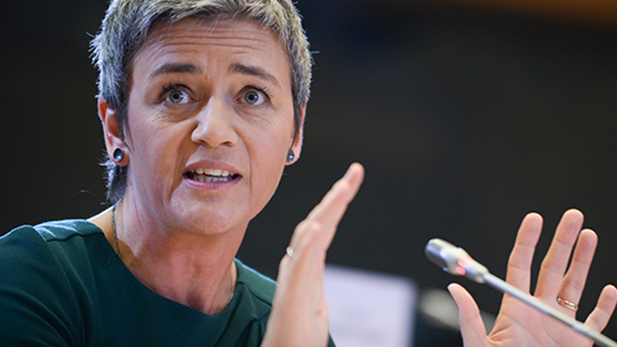An international tax regime – how far are we?

Photo: The EU Competition Commissioner, Margrethe Vestager.
Right now one might say that international tax cooperation stands at a fork in the road. In one direction is increasingly aggressive tax competition and fiercer conflict over who gets what from international economic activity. In the other direction, a consensus that who gets what now is distorted. This drives states to come together to get the job done of plugging holes in the fiscal boat and building an institutional architecture that will discourage free riding, provide stability of expectations and redress the harms of aggressive tax competition, explains Duncan Wigan, Associate Professor at the Department of Business and Politics at CBS.
“The EU Competition Commissioner, Margrethe Vestager, has one hand on the wheel here and may be able to answer the crucial question; cooperation or conflict?” he says.
On Friday Margrethe Vestager visits CBS for a seminar, which will provide a snapshot of how far we are in building fiscal sustainability and the forces at play in the game. She will talk about “An international tax regime – from a European perspective”.
“The notion of an international tax regime suggests that cooperation on issues of international taxation sits on the verge of a historical break through. Taxation being a cherished prerogative of the state, building a comprehensive international regime on taxation is by definition a difficult task. States instead often choose to deploy their sovereign capacity to write (tax) law as a competitive weapon. The impulse to do so only increases under conditions of rising capital mobility,” explains Duncan Wigan.
He continues:
“However, the OECD’s Base Erosion and Profit Shifting initiative might be interpreted as evidence of increasing cooperation and the current high point on the road to an international tax regime. Similarly in the EU, the updated Savings Tax Directive, the Anti Tax Avoidance Directive, improved information sharing, country-by-country reporting for large multinational firms and discussions of a Common Consolidated Corporate Tax Base (CCCTB) might suggest the emergence of at least a regional international regime.”
The context for this partial emergence is the aftermath of the global financial crisis, rising inequalities and recognition of the growing difficulty of taxing mobile capital, whether corporate or individual. Scandals such as the Panama Papers or revelations that many of the world’s largest firms seem to end up paying very low taxes on worldwide income serve to provide momentum to cooperation and increase the potential for a more robust international tax regime, explains Duncan Wigan.
See more about the event